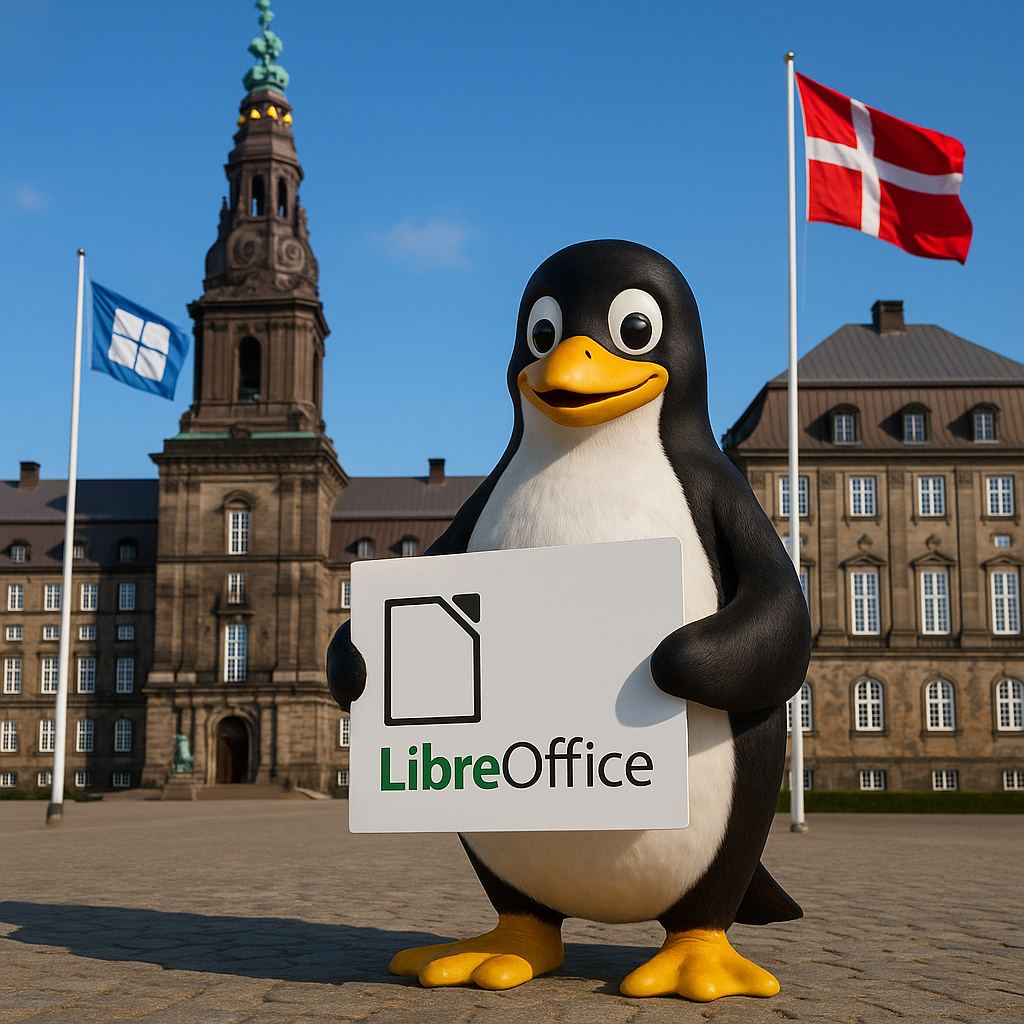Denmark is making a controversial move. Its government is phasing out Microsoft software in favor of open-source tools like Linux and LibreOffice — in one department, at least. The goal? Digital sovereignty, better security, and less reliance on American tech giants.
But is this the right call? Let’s break it down with five reasons Denmark could be making a smart move. And five ways it could spectacularly backfire.
5 reasons Denmark is right to ditch Microsoft
1. No more vendor lock-in
When governments rely on Microsoft for everything from word processing to cloud storage, they’re essentially locked into a single ecosystem. By switching to open-source software, Denmark can break free and regain control over its own systems.
2. Boosting national security
With open-source software, Denmark’s IT teams can inspect the code and make sure there are no backdoors or telemetry surprises. That’s not so easy with Microsoft products, which are closed by design and phone home regularly.
3. Lower long-term costs
Microsoft licenses aren’t cheap. LibreOffice and most Linux distributions are free. Over time, ditching those subscriptions could save the public sector millions. That’s money that could be spent on education, infrastructure, or literally anything else.
4. Encouraging digital independence
European countries have been talking for years about reducing their dependence on American tech companies. Denmark isn’t just talking. It’s actually doing something about it—and that makes it a trailblazer.
5. Microsoft is ending Windows 10 support
October 2025 marks the end of life for Windows 10. Denmark doesn’t want to be forced into buying new PCs just to run Windows 11. Switching to Linux avoids that entire upgrade trap.
But here are 5 reasons it might be a mistake
1. Employees aren’t ready
Switching to LibreOffice from Microsoft Office isn’t seamless. Spreadsheets behave differently, formatting can break, and staff who’ve used Word their whole lives might struggle to adapt. Training will be essential—and expensive.
2. Compatibility headaches
A lot of government workflows depend on Microsoft file formats. Even though LibreOffice handles .docx and .xlsx files, it’s not perfect. File formatting issues could cause chaos when sharing documents with outside agencies still on Microsoft.
3. Loss of productivity during the transition
Every large migration introduces friction. Staff will hit roadblocks, IT help desks will be flooded, and deadlines might slip. That downtime could cost more than the licensing fees ever did.
4. Software support gaps
Not all proprietary software has a Linux equivalent. If certain internal tools only work on Windows, Denmark may need to build replacements from scratch—or run Windows in virtual machines, defeating the purpose of the migration.
5. This might not scale
It’s one thing for a ministry or two to switch to Linux. But rolling it out across every school, city, and municipality is a whole different beast. Without clear leadership and technical guidance, this could get messy fast.
In the end, Denmark deserves credit for trying something so ambitious. Whether this experiment in digital sovereignty works or fizzles out remains to be seen. But one thing’s certain—it’s making people pay attention.
Other countries are likely to be watching closely. If Denmark can make Linux work for government, it could spark a much bigger shift across Europe.


